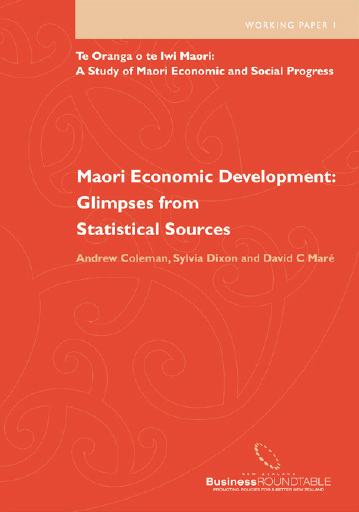Provisionally entitled Te Oranga o te Iwi Maori: A Study of Maori Economic and Social Progress, the book will look at factors and institutions that have influenced Maori development and ways of building on past achievements.
The first Working Paper, Maori Economic Development: Glimpses from Statistical Sources, was undertaken by Wellington-based Motu Economic and Public Policy Research. The authors were Dave Maré and Sylvia Dixon of Motu and Andrew Coleman, Assistant Professor of Economics, University of Michigan. The paper provides an overview of Maori economic development during the past 150 years, drawing on readily available statistical and historical sources.
Author Dave Maré said, "The path of Maori economic development that we have traced is one of ongoing change and adaptation, as well as one of substantial increase in material standards of living, albeit with periods of significant setback. "The living standards of Maori improved enormously during the 20th century (as did the living standards of non-Maori). One of the most important drivers of that process of improvement was the gradual incorporation of Maori into the market economy, leading to the acquisition of jobs, incomes, new skills and new sets of knowledge. Another driver was the extension of government social services and 'safety net' income support provisions to Maori. A third was the initiative of Maori people themselves: developing new types of business activity and social services, and channelling public funding for social services in directions likely to be of greatest benefit to Maori."



